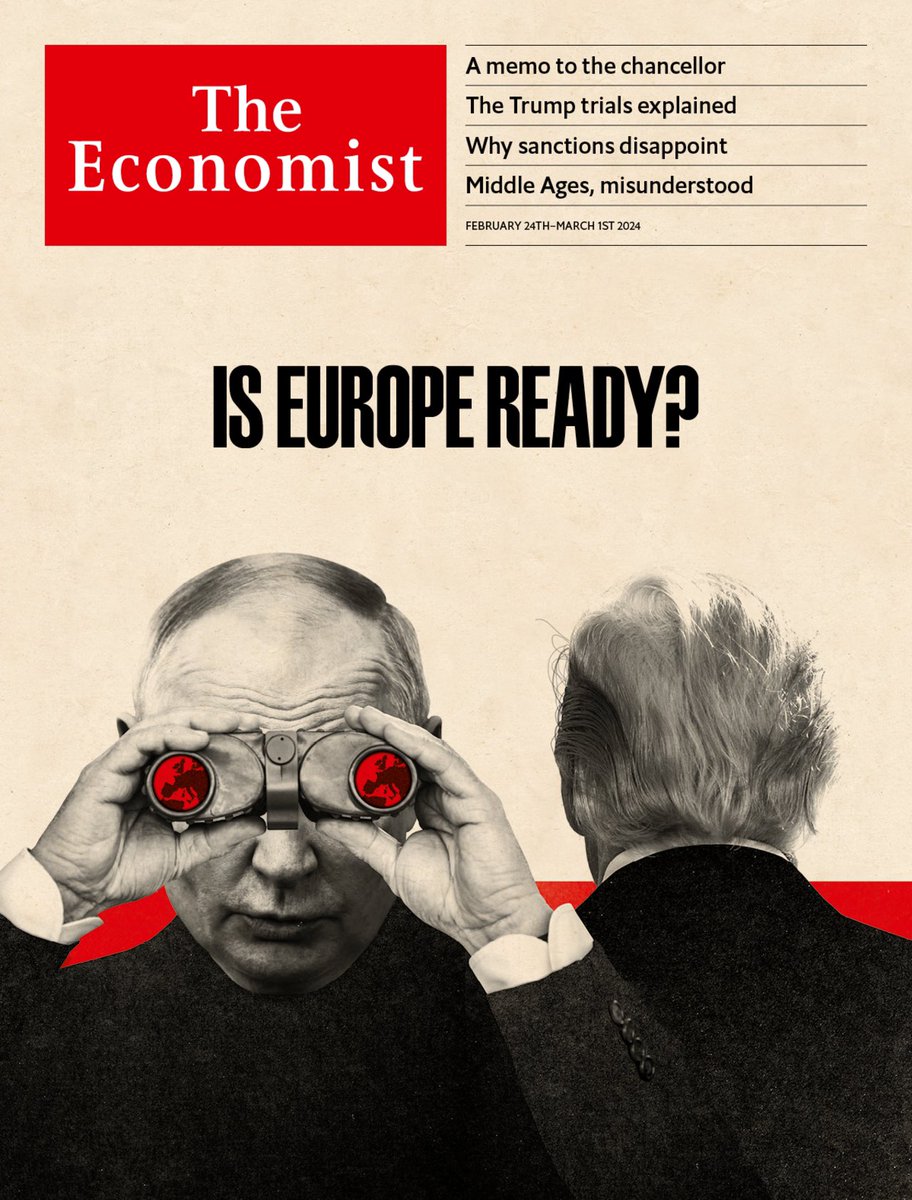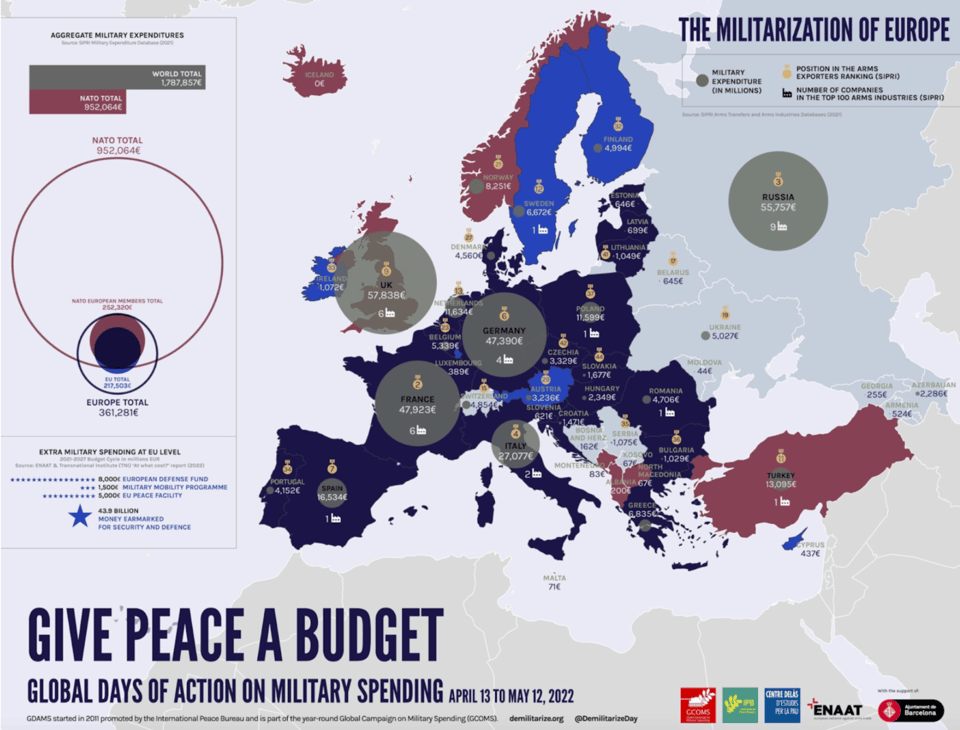Europe's Metal Era dilemma - Make or Buy?
The Paris Olympics means we are still awaiting who governs the second-biggest EU economy. While France is under caretaker government, we’re reviewing the threats to Europe that occupy domestic and foreign policy circuits. Then we look at the make-versus-buy disagreement, where the defense industry and strategy has common ground with climate ambition, both requiring Europe to overhaul its fiscal constitution and industrial policy to deal with security threats.

1 Domestic centre-right and far right courting fascists.
As much as pundits love to talk about the surge in support for the far right, it hasn’t been able to control any government beyond Italy. However, some of the far right’s failure to succeed can be attributed to centre-right governments courting fascists; and Meloni has successfully developed a centrist affect. No one is out of the woods yet.
2 Orientation with US
Coconut-pilled Harris vibes are up, but a Trump White House remains the baseline scenario. Trump’s stated campaign promise to wrap up the Ukraine war has loomed over Europe for over a year. Except for transatlantic tragics in Germany, there are few illusions in European capitals that a Trump WH would be hostile to both NATO and the EU project through tariff wars. What they have been doing is ramping up national defence budgets (Biden boasted at the NATO Washington summit in July “When I began just 9 countries were spending 2% on defense. Now 23 countries are now spending 2% on defense").
On Ukraine, European NATO countries have been limiting their commitments, sending ammunition and money, but not directly bleeding for it, or risking escalatory measures like no-fly zones. For its part, the UN General assembly on July 11 demanded that Russia: "immediately cease its aggression against Ukraine."
3 Relationship to & orientation with China
EU’s muddled China strategy has it simultaneously a partner, competitor and systemic rival. Hungary’s autocratic Prime Minister Viktor Orban - fresh from trips to Russia and China - is pursuing an independent foreign policy galling to the EU. He gave a belligerent yet insightful speech a few days ago. Orban’s pro-China foreign policy would ordinarily be criticised inside the EU, but his big pro-Chinese FDI battery policy that supplies German automakers has insulated Orban from pressure, as Palma Polyak points out.
Orban has broadly opposed Western aid to Ukraine, and on his “peace mission 3.0” to China remarked "China has a peace plan, America has a war policy, and Europe, instead of having its own strategic approach, is simply copying the American position." Creating more grief for the EU is the news of Chinese soldiers arriving in Belarus for military exercises.
4. Relationship & orientation with the South.
Trade; CBAM; finance; migration; Partnerships to “move up the value chain” on critical minerals have been lacklustre. The Commission is still at sea when it comes to persuading Global South countries that its Carbon Border Adjustment Mechanism won’t be, in effect, a penalty for failing to have the resources to put together a carbon pricing system. Europe sees it as way to neutralize carbon leakage and, ideally, to encourage industrial decarbonization in other countries.
MAKE OR BUY? For defence and climate
Domestic politics determines how it’s going to approach all these challenges. That in turn will be driven by the most powerful domestic industries.
There are two schools of thought in Europe currently about how to approach this balancing act, differentiated by the question of protectionism in green and defense industrial policy:
Make in Europe (common procurement of defense kit made by the German, French, Polish military industrial complex) or
Buy American defense kit.
For green goods it is the same question, with one difference: Make in Europe or Buy from China?
EU defense spending is now at a record $270 billion euros in 2023 but has traditionally been effectively national. Just 20% has been collaborative from EU-based suppliers. Experts find that there has never been a 'genuine pan-European defense procurement market, but rather ... [27 markets] fenced off with regulatory barriers to entry aimed at protecting national defence industries'.
The buy-American side (in defense)
The supporters of defense “buy” strategies are the market liberals and Transatlanticists associated with Germany/Baltics/Poland. These countries traditionally buy defense kit from the US instead of that made by the European military industrial complex. More than three-quarters of the defense purchases by EU member states since the Russian invasion of Ukraine were from outside the EU, with almost two-thirds of it from the US. But market prices of many items have risen steeply since Russia invaded Ukraine in early 2022, stretching their budgets. “While the United States has the Defense Production Act, which allows the government to prioritize the production of goods needed for national security, there is no such tool available to the European Union. There is also limited understanding in Brussels about the intricacies of the European defense market as a whole, its supply chains and its pricing mechanics.” - Defensenews
The “Make-in-Europe” side
Opposed to the Transatlanticists are the sovereigntists, or the strategic autonomists, associated with France who would want to build out a larger European military industrial complex. France has a large armaments sector – the third-largest exporter after the US and Russia.France is somewhat more interventionist than Germany and fellow liberals, (its 2023 military-budget law allows for requisitioning of its domestic industry), but the French military industrial complex is experiencing increasing rivalry from Turkey, Israel and Korea.
The compromise in the EU’s new Defence Industrial Program is that by 2030, at least 50% of member states’ defense procurement budget should go to EU-based suppliers. The budget for this scheme? A grand €1.5 billion. But fear not, the EC is proposing a 100 billion euros of fresh debt, opposed by the key fiscal hawks and Transatlanticists: Germany and Netherlands.

On the trade protectionism question: EU is a huge trading partner for virtually every country. The issue is whether it can continue to insist on a level playing field “play by the rules” stance as the ordoliberals in the EU Commission want, or whether it becomes a more strategic/pragmatic actor on trade. (The US, meanwhile, has been very clear that it is uninterested in the globalist free trade axioms, and sees access to its own large markets as a “carrot” for friendly countries).
Fear of the far-right us making Europe more inward looking, protectionist, maybe courting Russia. But for now at least, we have two of the big European countries not having the far right in power.
Thanks for reading us. Email us your feedback. We are tracking the gathering storm in the Middle East next week.
Add a comment: